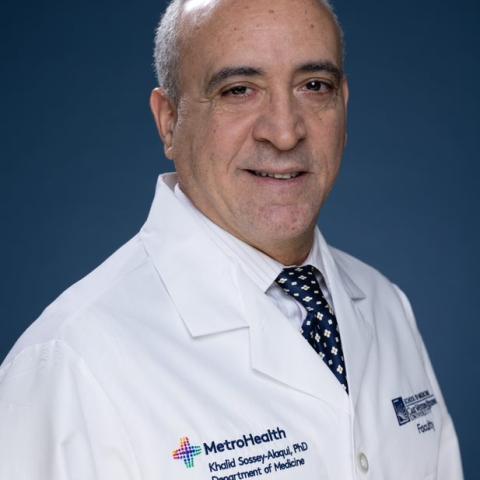Khalid Sossey-Alaoui, PhD, member of Case CCC's Molecular Oncology Program, received a five-year, $2.3 million grant to study mechanisms mediating "triple-negative" breast cancer and health disparities in African-American women.
Among genetically distinct breast cancers, those classified as triple-negative are especially devastating due to their highly metastatic behavior, their propensity to recur rapidly, and their low response to current standard-of-care chemotherapies. In addition, triple-negative breast cancer disparately affects African-American women with a more than two-fold increase in death rates compared to white-American women, even after adjusting for socioeconomic factors, age at diagnosis and treatment modalities.
Sossey-Alaoui and his team recently established the YB1 gene as a novel driver of deadly triple-negative breast cancer activities, through the stimulation of key molecular pathways that promote chemoresistance and triple-negative growths. More significantly, the team found that the YB1 gene is more active in tumors in African-American women than in their white-American counterparts. These observations are the impetus of this award.
The funds will be used to investigate the molecular determinants that regulate the YB1-mediated modulation of chemoresistance and the metastatic progression of triple-negative breast cancer in African-American women. The studies will also investigate how differences in genetics, combined with social drivers of health, conspire for the disparities in disease outcomes in African-American women.


